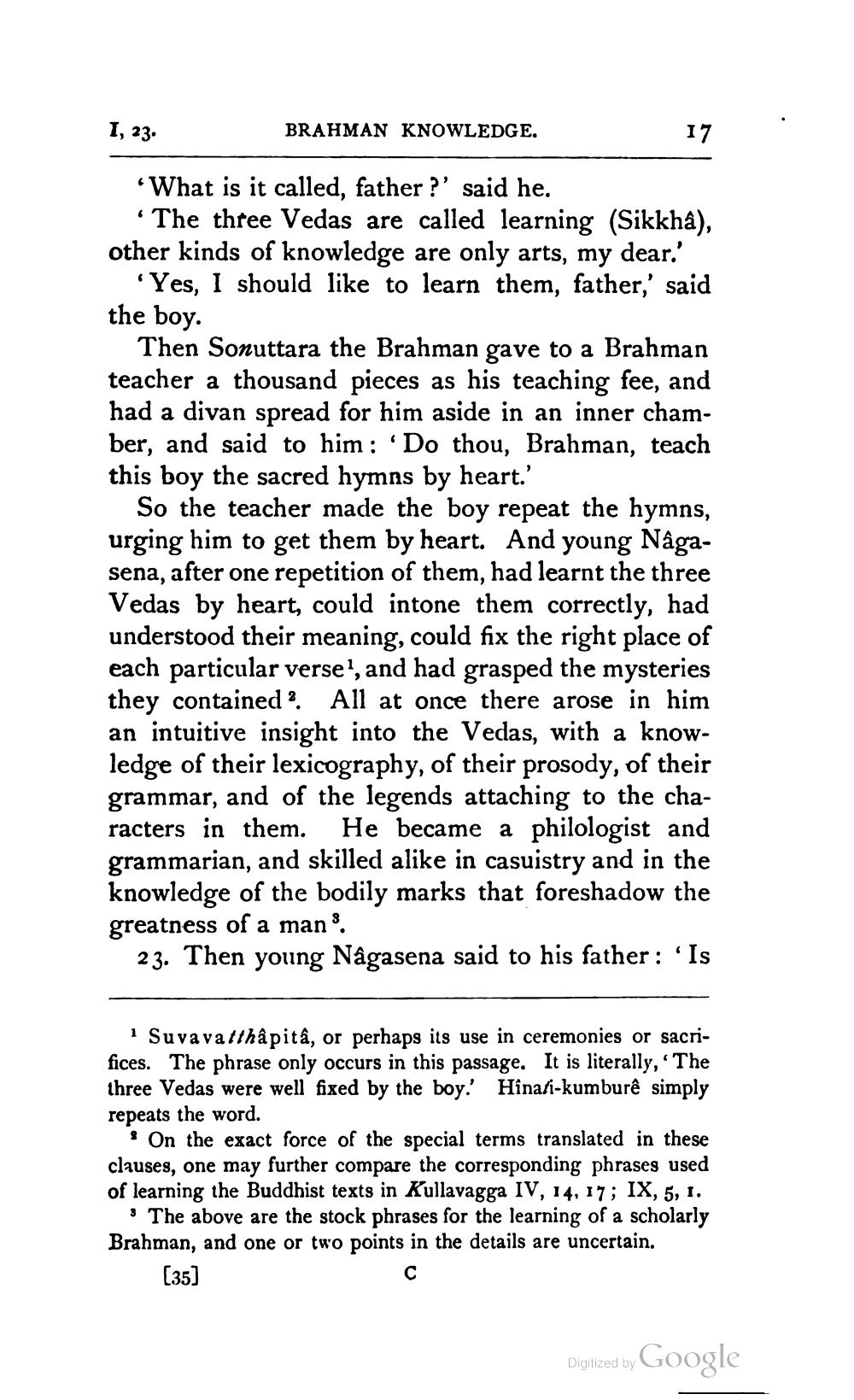________________
1, 23.
BRAHMAN KNOWLEDGE.
17
What is it called, father ?' said he. • The three Vedas are called learning (Sikkhâ), other kinds of knowledge are only arts, my dear.'
'Yes, I should like to learn them, father,' said the boy.
Then Sonuttara the Brahman gave to a Brahman teacher a thousand pieces as his teaching fee, and had a divan spread for him aside in an inner chamber, and said to him: 'Do thou, Brahman, teach this boy the sacred hymns by heart.'
So the teacher made the boy repeat the hymns, urging him to get them by heart. And young Nâgasena, after one repetition of them, had learnt the three Vedas by heart, could intone them correctly, had understood their meaning, could fix the right place of each particular verse', and had grasped the mysteries they contained ?. All at once there arose in him an intuitive insight into the Vedas, with a knowledge of their lexicography, of their prosody, of their grammar, and of the legends attaching to the characters in them. He became a philologist and grammarian, and skilled alike in casuistry and in the knowledge of the bodily marks that foreshadow the greatness of a mans.
23. Then young Nâgasena said to his father : 'Is
Suvavatthâpitâ, or perhaps its use in ceremonies or sacrifices. The phrase only occurs in this passage. It is literally,‘The three Vedas were well fixed by the boy. Hinafi-kumburê simply repeats the word.
* On the exact force of the special terms translated in these clauses, one may further compare the corresponding phrases used of learning the Buddhist texts in Kullavagga IV, 14, 17; IX, 5, 1.
• The above are the stock phrases for the learning of a scholarly Brahman, and one or two points in the details are uncertain.
[35]
Digitized by
Digiized by Google




